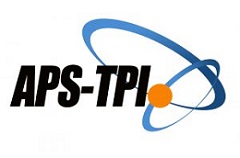Blended Training Development on Technical Competency Training for Family Planning Instructors (PKB) with Junior Expert Position in National Population and Family Planning Board
Abstract
This study aims to analyze the duties of the junior expert family planning instructors (junior expert PKB), analyze the existing technical training curriculum for the junior expert PKB, design the blended training curriculum for technical training for the junior expert PKB, and evaluate the blended training curriculum for technical training for the junior expert PKB. The method used in this research was design and development, developed by Richey and Klein with three stages: analysis, design and development, and evaluation. In general, the competency standards formulated for the junior expert PKB focus on assessment and evaluation of IEC (information, education, and communication), advocacy, recording and reporting to data and information analysis. Meanwhile, the strategy used in training was blended learning by combining face-to-face learning and e-learning. The evaluation was carried out using portfolio assessment. This training curriculum design was assessed by curriculum and e-learning experts in the form of expert reviews with very good results and suitable for use. Moreover, based on the feasibility test conducted on the user, the blended training curriculum developed was very good and suitable for use in technical competency training for the junior expert PKB
Keywords
Full Text:
PDFReferences
Allan, Barbara. (2007). Blended Learning Tools For Teaching and Training.London: Facet Publishing
Ali, M. (2014). Memahami Riset Perilaku dan Sosial. Jakarta: Bumi Aksara.
Ali, M.(2017). Curriculumm Development for Sustainability Education. Bandung : Upi Press.
Badan Kependudukan dan Keluarga Berencana Nasional. (2017). Materi Profil Penyuluh KB/Penyuluh Lapangan KB Tahun 2017. Jakarta: BKKBN.
Badan Kependudukan Keluarga Berencana Nasional. (2018). Survei Kinerja dan Akuntabilitas Program KKBPK (SKAP) Keluarga Tahun 2018. Jakarta; BKKBN.
Basseng. (2020). Tantangan dan Strategi Lembaga Pelatihan Membangun ASN Unggul. Jakarta: Lembaga Administrasi Negara.
Ganesh, M. (2015). Importance and Effectiveness of Training and Development. Mediterranean Journal of Social Sciences, 6 (1).
Garrison and Akyol. (2013). The Community of Inquiry Theoretical Framework: In the Context of Online and Blended Learning. Diakses dari: https://www.researchgate.net/publication/284306348_The_Community_of_Inquiry_Theoretical_Framework
Husamah. (2014). Pembelajaran Bauran (Blended Learning). Jakarta: Prestasi Pustaka
Jonassen, Martin Tessmer, Wallace H. Hannum. (2009). Task Analysis Methods ForInstructional Design. New York: Routledge
Kamil, Mustofa. (2013). Model-Model Pelatihan. Diakses dari: http://file.upi.edu/Direktori/SPS/PRODI.PENDIDIKAN_LUAR_SEKOLAH/196111091987031-MUSTOFA_KAMIL/Bhaan_kuliah/Model-model_pelatihan.pdf
Kaufman, Roger A. (1972). Educational System Planning.USA: Prentice Hall
Kementerian Pendayagunaan Aparatur Sipil Negara dan RB.(2018) Permenpan RB Nomor 21 tahun 2018 tentang Jabatan Fungsional Penyuluh Keluarga Berencana. Jakarta: Menpan RB
Kim, Jeonghyun. (2015). Competency Based Curriculum: An Effective Approach to Digital Curation Education. University Of North Texas. Diakses dari: https://files.eric.ed.gov/fulltext/EJ1082900.pdf
Komara, Endang. (2019). Kompetensi Profesional Pegawai ASN (Aparatur Sipil Negara) di Indonesia. MIMBAR PENDIDIKAN: Jurnal Indonesia untuk Kajian Pendidikan, Volume 4(1), Maret, pp.73-84. Bandung, Indonesia: UPI [Indonesia University of Education] Press, ISSN 2527-3868 (print) and 2503-457X (online).
Lembaga Administrasi Negara. (2011). Peraturan Kepala Lembaga Administrasi Negara Nomor 13 Tahun 2011 Tentang Pedoman Umum Pembinaan Penyelenggaraan Pendidikan dan Pelatihan Teknis. Diakses dari: http://ppid.lan.go.id/wp-content/uploads/2014/10/Perkalan-no.13-Tahun-2011-Tentang-Pedoman-Penyelenggaraan-Diklat-Teknis.pdf
Maulida, MR., Sukarelawati &AA Kususmadinata. (2017). Korelasi Pesan Dengan Sikap Peserta Penyuluhan Program Keluarga Berencana nAsional Di Puskesmas Pembantu. Jurnal Komunikatio Volume 3 Nomor 2, Oktober 2017.
McNeill, John D.(2006). Contemporary Curriculum In Thought And Acion.USA: John Wiley& Sons,Inc.
Meyer & Booker. (2001). Eliciting and Analizing Expert Judgment. London: American Statistical Association and The Society for industrial and Applied Mathematics.
Nusaku, Legendaria.(2014). Analisis Pegaruh Kemampuan Dan Kompetensi Terhadap Kinerja Pegawai. Jurnal Sains Manajemen Volume III, Nomor 1, April 2014. Diakses dari: http://www.jsm-msmupr.com/wp-content/uploads/2015/06/10-LEGENDARIA.pdf
Nurhajati, W. A. & Bachri, B. S.(2014). Pengembangan Kurikulum Pendidikan dan Pelatihan (Diklat) Berbasis Kompetensi Dalam Membangun Profesionalisme Pegawai Negeri Sipil (PNS).
Nurhajati, W. A. (2018). Peningkatan Kompetensi Penyuluh Keluarga Berencana Provinsi Jawa Timur Melalui Diklat Berbasis E-learning. Proceedings of the ICECRS, 1(3), 183–196. https://doi.org/10.21070/picecrs.v1i3.1395
Ornstein, Allan C & Hunskin, Francis. (2009). 5Th Edition Curriculum Foundations, Principles and Issues. USA: Pearson.
Pandey, Asha.(2017). 5 Reason Why You Should Adopt Blended Training. Diakses dari: https://elearningindustry.com/blended-training-reasons-adopt
Patrick, J. (1992). “Training: Research and Practice”. London: Academic Press Inc.
Penn State University. (2017). Alternative Assessment. Diakses dari: http://tutorials.istudy.psu.edu/testing/testing7.html.
Poon, Joanna. (2013). Blended Learning: An Institutional Approach For Enhancing Students’ Learning Experiences. Diakses dari: https://jolt.merlot.org/vol9no2/poon_0613.pdf
Rahman, M.Ali. (2019). Peran BKKBN Dalam Mengatur Kependudukan Indoesia Melalui Program Keluarga Berencana. Diakses dari: https://www.researchgate.net/publication/336698824_PERAN_BKKBN_DALAM_MENGATUR_KEPENDUDUKAN_INDONESIA_MELALUI_PROGRAM_KELUARGA_BERENCANA
Richey and Klein. (2007). Design and development research. New York : Routledge
Riduwan. (2013). Rumus dan Data Dalam Analisis Statistika. Bandung: Alfabeta.
Setyowati, Evi., Arsiyah & Ahmad Riyadh. (2016). Peran Petugas Lapangan Keluarga Berencana dan Pembantu Pembina Keluarga Berencana Desa Dalam Mensosialisasikan Alat Kontrasepsi. JKMP (ISSN.2338-445X dan E-ISSN.2527 9246), Vol.4, No.2, Sepetember 2016, 117-234.
Suhenda, Dadang. dkk. (2019). Indeks Kepuasan Konsumen Terhadap Kinerja PKB di Provinsi Jawa Barat. Latbang Perwakilan BKKBN Provinsi Jawa Barat
Syaifar, Bujang. (2015). The effectiveness of education and training management of the pubic servants at the Center of Education and Training of Ministry of Domestic Affairs Regional Bukittinggi. Diakses dari: https://eric.ed.gov/?id=EJ1075868
Sugiyono. (2014). Memahami Penelitian Kualitatif. Bandung: Alfabeta.
Susilana dan Riyana. (2009). Media Pembelajaran: Hakikat, Pengembangan, Pemanfaatan dan Penilaian. Bandung: CV.Wacana Prima.
Wahyudin, Dinn.(2014). Manajemen Kurikulum. Bandung: PT Remaja Rosdakarya
Zais, Robert.s.(1976). Curriculum Principles and Foundations. New York: Harper & Row Publishers.
Zyainuri & Marpanji. (2013). Penerapan E-learning Moodle untuk Pembelajaran Siswa Yang Melaksanakan Prakerin. Diakses dari: https://www.researchgate.net/publication/328454080_Penerapan_e-learning_moodle_untuk_pembelajran_siswa_yang_melaksanakan_prakerin
Wireman, Terry. (2013). Training Programs for Maintenance Organizations. USA: Terrence O’Hanlon.
Refbacks
- There are currently no refbacks.





.png)













